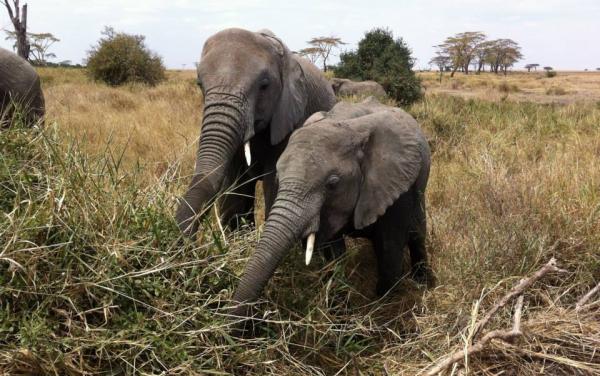Canned hunting - Sport hunting

Sport hunting is a touristic activity which, for the involved person, consists in travelling both at national and international level with the purpose of hunting. According to those who practice this activity, hunting tourism and general sport hunting positively contribute to species and habitat conservation and also represent an essential source of income for local people.
Below, we analyze why those statements do not reflect the reality:
- Although there is no doubt that hunting tourism – especially big game hunting – is a lucrative business, eco-tourisms (which is mainly based on wildlife watching) creates a 15 times larger income. The reasons are obvious: although hunters pay huge amounts of money, tourists are many more. In addition, hunters pay to shoot at animals that afterwards die and, as a consequence, lose their “economic value”; tourists, on the contrary, can “shoot” with their cameras at the same animal hundreds of times and he will keep the same “value”. In most places, hunting season has a limited duration, while eco-tourism or wildlife watching can be performed over the entire year and create a higher number of employments. The result is that hunting tourism generates an income equal to a mere 1,8% of tourism revenue in general in the 9 main countries where this activity is allowed.
- Big game hunting is an important business above all in Africa: this is not a surprise considering the amount of 60.000 $ which hunters are ready to pay and which represent a substantial amount of easy and appealing money for governments of developing countries. Yet, those who think this money can be used to feed local people or fauna conservation is greatly mistaken: only 3% of the revenues coming from this industry actually reaches local people living in the areas where hunting takes places. The rest goes mainly into politicians’ pockets, and what remains is divided among hunting companies, landowners, international agents and taxidermists.
- As if all this were not enough, hunting tourism has been threatening eco-tourism, which represents the main life-support form for local people, whose representatives complain about hunters who frighten both animals, forcing them to hide, and also tourists, who, in several cases, have been accidental witnesses of animal killings.
Finally, it is worth reminding that hunting favors corruption: the trophies hunters want are very unusual and, to get them, many are willing to bribe and pay for an “extra” service to shoot to species in danger, to animals whose sex or age are not in line with hunting rules or to hunt using illegal methods.
Even in the USA and in Canada, two of the best regulated countries, poaching keeps being performed “behind” sport hunting: in Maine, Alaska and Alberta, several experiences guides have been caught red-handed.
- Supported by powerful international hunting lobbies, this industry encourages hunting tourism as a form of conservation and ignores world scientists’ recommendations who warn that the consequences for species can be extremely serious. Experts agree when it comes to state that for each adult lion that is killed, up to 12 litters die, mainly because another dominant male occupies his predecessor’s place and kills his cubs. This phenomenon had been extensively documented in lions, bears, leopards and several other animals.
Therefore, serious genetic implications arise: hunters – who wish to show off the “best” animal on top of their fireplaces – aim at individuals who have the longest manes and the biggest horns – that usually are those who defend the other members of the group – causing a disappearance or a decrease of those characteristics in the new generations. Not to mention the fact that if the strongest animals disappear, only the weakest will reproduce, whose genetic traits will not be kept naturally. To give a practical example, elephant hunting is increasingly leading to births of elephants without fangs and, in Canada, to a reduction of horn dimensions in muflons to a preoccupying 20% over the last 40 years.
Not to mention the fact that this activity has been destroying the natural dynamics of several animal populations and has contributed to the extinction of species in the entire world, such as the Tasmanian tiger and the giant elk.
- And how about the involved animals? Even if hunters see them as mere trophies, we must not forget that we are speaking about living and sentient beings that sometimes are left to bleed to death, since hunters do not want to ruin their precious trophies by drilling them. Also, animals that are killed are not the only victims, since entire families prides are affected. For animals as wolves, that create long relations and live in small and united groups, losing a member of the family can have serious consequences. The stress those animals suffer can affect their food habits and can create problems in accumulating vital reserve of fat and energy for wintertime. Stress and fear can also push animals to come closer to streets, leave their litters and become extremely weak and end up falling ill or die.
- Finally, we must not forget that stating that hunting respect the wild means that the life of the animals that are victims of this “sport” does not have any value and their sufferings is not important. This subject implies that animals only have values according to the function they have and the benefit to human beings; yet, it forgets, though, that all animals – human or not –are beings who feel and live our lives and, therefore, have their own inner value and right to take advantage of our existence, regardless of whether this is useful to others.
Sources:
http://www.ecolarge.com/wp-content/uploads/2013/06/Ecolarge-2013-200m-question-FINAL-lowres.pdf
http://www.igualdadanimal.org/entretenimiento/caza
